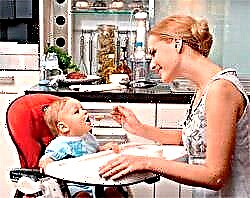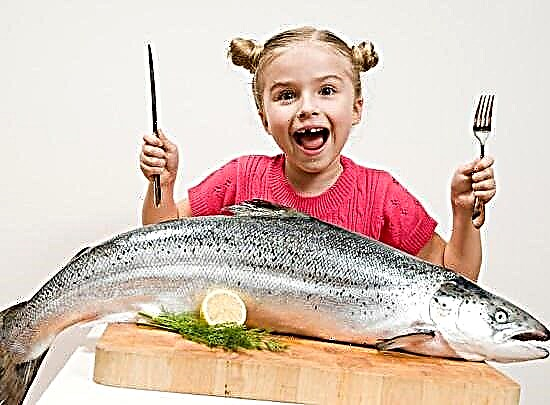Digestive problems in young children are familiar to every mother. The sterile intestine of the newborn begins to colonize with bacteria with the first sip of colostrum and learns to digest food. This process does not go smoothly; every baby has some kind of digestive trouble.

Intestinal colic
Causes of crying in a newborn during bowel movements
The intestines of a newborn, lacking a rich set of enzymes and beneficial bacteria, are not able to digest food efficiently, especially if the child is fed in violation of the regimen. The main cause of painful bowel movements is excess gas production, which stretches the bowel walls.
Interesting! Sometimes a newborn cries when pooping, not from pain, but instinctively. Having emptied the intestines, the baby informs the mother that it is time to change the diaper.
Physiological causes of constipation
A common cause of crying is hard lumps of stool that come out painfully during bowel movements. With proper feeding, babies do not have constipation. The feces of a healthy child up to 6 months old are predominantly yellow, liquid, without a characteristic odor. If the mother violates the baby's diet and diet, this will certainly cause painful bowel movements.
Among the causes of constipation that occur in artificially fed children are:
- violation of the proportion when preparing the mixture;
- introduction of complementary foods up to 6 months;
- replacement of the adapted milk formula with milk from farm animals.
The maternal instinct to feed her baby better plays a decisive role in the formation of digestive problems. After reading the proportions for preparing a single serving on the package of the mixture, many mothers decide on their own to increase the number of measuring spoons by the same amount of milliliters of water. In the parent's opinion, this combination turns out to be much tastier and more satisfying, which means that the child will be fed and satisfied longer. In practice, it turns out quite differently: a more concentrated mixture forms not a liquid painless stool, but a dense and traumatic one.

Mix preparation
The introduction of complementary foods into the diet before the baby is six months old also causes the baby to cry when she poops. Porridge is especially dangerous for infants under 6 months of age. Even in their most liquid form, they form very hard and bulky feces.
Goat and cow milk, after curdling in the stomach, also forms hard stools. It is very difficult for the intestines of the breast to cope with such a load, it causes severe pain in the baby's abdomen, which is why he cannot but cry.
Fictitious constipation in infants
The child cries before pooping, if this is due to painful passage of feces or increased gas production. Parents are often worried if they have not seen their toddler defecate at least once a day. Mothers immediately believe that the child has constipation, they are looking for ways to treat it, any crying is attributed to digestive problems. Most often, this situation occurs in breastfed babies.
Mother's milk is very suitable for many babies, especially if the mother is not fond of overfeeding and lays the baby to her breast no more often than every 2-3 hours. With this feeding regimen, everything that the baby eats is successfully absorbed in the intestine, as a result, there is practically no biological material left for the formation of feces. Therefore, breastfed babies can poop every two to three days, this is the absolute norm. The mother of such a child should not worry, but be proud of the fact that her milk is completely suitable for the child.

Lactation
An indicator of digestive problems is when the baby cries every time before pooping. If the baby gets upset several times during the day, but does not twist his legs and does not push, then the reason for crying is different. The absence of a chair is not associated with such crying.
Ways to Ease Infant Stomach Pain
Almost all children suffer from intestinal colic. According to statistics, boys with colic are more common than girls. From 3 weeks to 3 months, peristalsis is formed, beneficial bacteria are colonized, organs learn to produce enzymes and filter blood.
These processes can proceed without pain if the parents were able to provide everything necessary for the child's comfortable digestion:
- Observe the mode of cool and humid indoor air. If a child grows up in heat and stuffiness, his intestines, like all other organs, overheat, which is why the food, being digested, forms gases that torment the child. Dry air forces the body to waste its moisture in preparing air for the lungs, causing dehydration, hardening of stool and painful stool.
- Observe the feeding regime. Overfeeding is the first cause of colic. A child's body can produce limited amounts of enzymes to break down milk protein. Anything a baby eats in excess will rot in his intestines, leading to colic, bloating and dermatitis.
- In hot months, when air overheating is difficult to get rid of, even newborns need to be supplemented with water. Lack of moisture in the body can lead to serious health problems, not limited to digestive difficulties.
The child can be helped with massages. If parents have a question about why their newborn cries when pooping, they can stimulate the intestines before each feeding. To do this, 40 minutes before the next feeding time comes, the baby must be placed on his stomach. Jerking legs and arms, he will massage the intestines, acting on it with his weight. The benefit of laying on the stomach also lies in the fact that while the baby is lying like that, the air that interferes in the stomach will definitely come out. Thanks to this, it will not provoke profuse regurgitation and will not enter the intestines, which means that the risk of gas formation will decrease.
After the baby has eaten, it must be held vertically so that it is easier for the esophagus to release the air that has got in with the food. After that, you can lay the baby on an adult pillow or a special hammock so that the head is higher than the stomach. This will make it easier for any remaining air bubbles to escape.
An hour after feeding, you can massage the abdomen. To do this, the mother should put the base of her palm on the belt of the diaper, and make massaging circular movements with her fingers.

Abdominal massage
Attention! You can massage the abdomen only clockwise. It is in this direction that food moves through the intestines. Otherwise, the massage will interfere with normal peristalsis.
Constipation prevention tips
If complementary foods have already appeared in the life of the baby, you need to very carefully increase the number of feedings that replace milk.
Complementary feeding without constipation
| Age, months | Number of replaced feedings, pcs. | Featured Products |
|---|---|---|
| 6-7 | 1 | Kefir |
| 8-9 | 2 | Kefir, porridge |
| 10-11 | 3 | Kefir, porridge, vegetable puree |
| 12 and older | 4 | Kefir, porridge, vegetable puree with meat, fruit |
Do not overuse porridge. Pediatricians not in vain say that it is unacceptable to feed a child twice a day with porridge for up to a year, for example, in the morning and in the evening. Parents believe that this is how the doctor warns against overweight. In fact, this is how the first constipation appears, which is why the baby screams before going to the toilet.
Only a careful attitude to the child's digestion will save him from intestinal pangs. The child's body must smoothly rebuild to new products so that excess gas does not form, and so that the baby does not cry before poking. Parents should understand why doctors are reporting restrictions on the introduction of new foods into the infant's diet. You do not need to draw up feeding schemes yourself. Only by following the recommendations of professionals, it will be possible to protect the baby from colic and allow him to painlessly go to the toilet.



